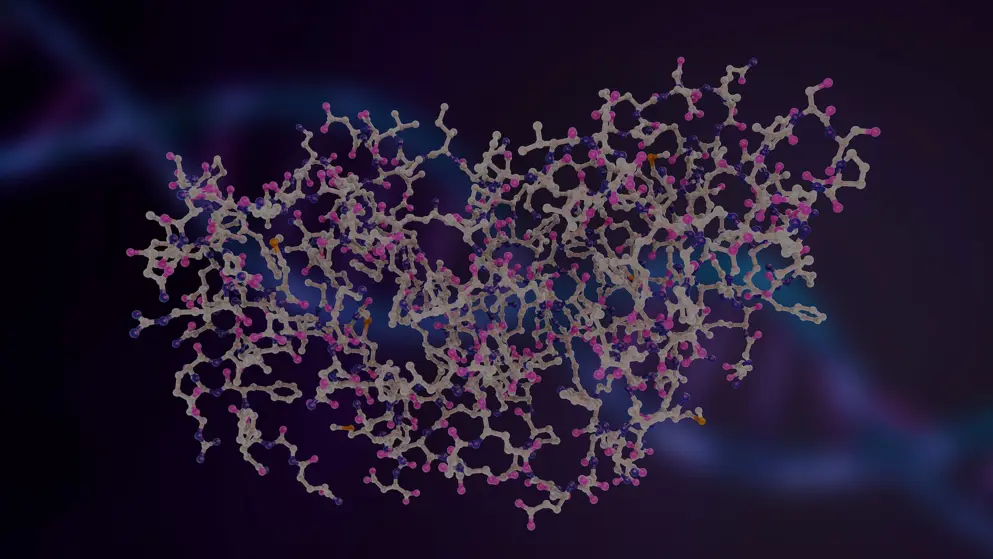
Exploring the future of MAS in Still’s disease
What burdens do people with macrophage activation syndrome (MAS) and their carers face on a day-to-day basis? How could the immune equilibrium model apply to MAS or hemophagocytic lymphohistiocytosis (HLH), and what potential management strategies are emerging for people with Still’s disease and MAS?
Fabrizio De Benedetti chairs the symposium “Exploring the future of MAS in Still’s disease,” joined by expert faculty Fatma Dedeoglu and Petter Brodin, at the 31st European Paediatric Rheumatology Congress, hosted by the Paediatric Rheumatology European Society (PReS) in Gothenburg, Sweden.
Day-to-day challenges in patient management
Videos in this section: What are the clinical features of MAS and sJIA?; What are the classification criteria for MAS?; What are the day-to-day challenges and burdens experienced by people with MAS and their carers?; What are the management guidelines for MAS?
What are the clinical features of MAS and sJIA?
Fatma Dedeoglu (Harvard Medical School, USA), an associate professor of pediatrics and experienced pediatric clinician, explains the clinical features of systemic juvenile idiopathic arthtritis (sJIA), adult-onset Still’s disease (AOSD), and MAS.
See the “Meet the experts” section for more information on Dedeoglu’s professional experience and interests.
What are the classification criteria for MAS?
What are the criteria scores for MAS, and how can these be applied in clinical practice? Dedeoglu presents the 2016 MAS classification criteria, sharing her clinical insights on how these criteria can be interpreted and leveraged in the clinical setting.
What are the day-to-day challenges and burdens experienced by people with MAS and their carers?
What do people with MAS and their carers want to know, and what obstacles do they face on their journey to diagnosis and beyond? Dedeoglu presents the experience of people living with HLH/MAS, highlighting the high disease burden and need to engage patients when designing studies.
What are the management guidelines for MAS?
Mortality reduced from 50% to 6%.
Dedeoglu emphasizes why collaboration is the key to optimal outcomes, and highlights how evidence-based guidelines for the diagnosis and management of people with MAS/HLH have improved survival rates in the clinic.
Unraveling the mechanisms
Videos in this section: What do we need to know about human immunity to understand MAS?; The immune equilibrium model – how could it apply to MAS?; Uncontrolled type 1 responses – how might these apply to people with MAS?
What do we need to know about human immunity to understand MAS?
How might immune system equilibrium play a role in MAS? Petter Brodin (Imperial College London, UK and Karolinska Institutet, Stockholm, Sweden), professor of pediatric immunology, discusses the person-specific variability of the immune system and the role of different immune cells, cytokines, and chemokines in the four types of immune response. He proposes how disruption of this equilibrium could be linked to uncontrolled type 1 responses and MAS development.
See the “Meet the experts” section for more information on Brodin’s professional experience and interests.
The immune equilibrium model – how could it apply to MAS?
What is the role of “balance” in immune responses, and how might it lead to the development of MAS? Brodin discusses MAS and HLH within the context of the immune equilibrium model and proposes how background inflammation and individual variations in type 1 responses may determine the “threshold” for developing MAS.
Uncontrolled type 1 responses – how might these apply to people with MAS?
At the heart of it, it’s a balance between different purposes, and when that balance is lost, one type of response can go off the rails.
Brodin explains the occurrence and triggers of uncontrolled type 1 responses in MAS, highlighting the central role of interferon gamma (IFNγ) in type 1 responses and MAS pathophysiology.
Emerging management strategies
Videos in this section: What is the role of hyperinflammation in HLH, MAS, and sJIA, and how can we measure it?; How can we leverage CXCL9 to predict MAS severity?; What are the potential targets for managing MAS?
What is the role of hyperinflammation in HLH, MAS, and sJIA, and how can we measure it?
What biomarkers are used to measure hyperinflammation? Fabrizio De Benedetti (Bambino Gesù Pediatric Hospital, Rome, Italy), an experienced clinician and head of the Division of Pediatric Rheumatology and the Laboratory of ImmunoRheumatology, introduces the concept of the vicious loop of hyperinflammation and explains how he uses CD8+ T cells and CXCL9 in his clinic to distinguish MAS from other inflammatory disorders.
See the “Meet the experts” section for more information on De Benedetti’s professional experience and interests.
How can we leverage CXCL9 to predict MAS severity?
Can we predict MAS course severity? De Benedetti presents data on clinical-driven scores for understanding MAS severity using laboratory parameters, including the CXCL9-based prognostic score.
What are the potential targets for managing MAS?
What evidence is there for emerging targeted treatments in MAS management? De Benedetti explains mechanisms of action and clinical trial results related to targeting Janus kinases (JAK), interleukin (IL)-1 and IL-18, and IFNy in MAS/HLH.
Meet the experts
 Fabrizio De Benedetti, MD, PhD
Fabrizio De Benedetti, MD, PhD
Fabrizio De Benedetti works at the Bambino Gesù Pediatric Hospital in Rome, Italy, where he serves as head of the Division of Pediatric Rheumatology and head of the Laboratory of ImmunoRheumatology. His primary clinical and research focus is the pathogenesis of pediatric inflammatory diseases, with a particular emphasis on the role of inflammatory cytokines. De Benedetti’s research has led to the identification of novel biomarkers of disease activity and novel therapeutic targets.
Disclosures: Grants/research support: AbbVie, Novartis, Pfizer, Roche, Sanofi, SobiTM. Consultancy and/or speaker fees: Novartis, SobiTM.
 Petter Brodin, MD, PhD
Petter Brodin, MD, PhD
Petter Brodin is the Garfield Weston Chair and Professor of Paediatric Immunology at Imperial College London, and Professor of Pediatric Immunology at the Karolinska Institutet, Stockholm, Sweden. He runs a multidisciplinary laboratory comprising computational scientists and technology experimentalists, studying human immune system variation, its development, and regulation/dysregulation. He has studied the early development of human immune systems, applying computational and experimental methods to understand the development of severe disease during the COVID-19 pandemic, and investigating new conditions.
Disclosures: Cofounder of Cytodelics; executive board member of Kancera AB; scientific adviser for Helaina Inc., Oxford Immune Algorithmics Ltd, Pixelgen Technologies AB, Scailyte AG, Sention Health Ab, and the Swedish Olympic Committee.
 Fatma Dedeoglu, MD
Fatma Dedeoglu, MD
Fatma Dedeoglu is Associate Professor of Pediatrics at Harvard Medical School and Staff Clinician at Boston Children’s Hospital (BCH), Massachusetts, USA. She established an autoinflammatory clinic at BCH in 2014 and has contributed to the discovery of new diseases. She is also the co-director of BCH’s combined rheumatology/dermatology clinic and co-led the establishment of the autoinflammatory study group in the Childhood Arthritis and Rheumatology Research Alliance. Dedeoglu’s research interests have included autoantibodies, T-cell receptors and autoimmunity, and the regulation of activation-induced cytidine deaminase (AID) gene expression.
Disclosures: Advisory board member: Autoinflammatory Alliance; ISSAID Education Committee Chair; royalties from UpToDate for chapter writing.
of interest
are looking at
saved
next event
This webpage content has been developed by EPG Health and sponsored by SobiTM. The content hosted on this platform is intended for educational purposes. The content presented in the SobiTM-sponsored symposium was provided by medical professionals and the views and opinions expressed do not necessarily reflect those of SobiTM. Any data about non-SobiTM products are based on publicly available information. Prescribing information may vary depending on local health authority approval in each country. Before prescribing any product, always refer to the Summary of Product Characteristics (SmPC) or product information approved in your local country. This educational activity is intended for healthcare professionals only.

